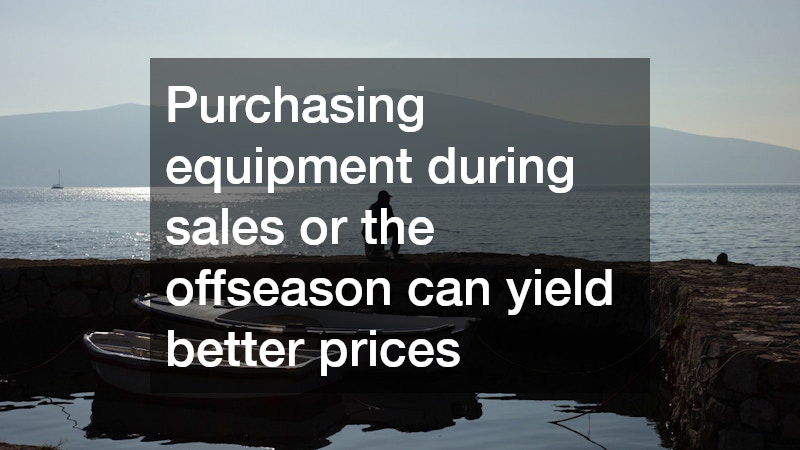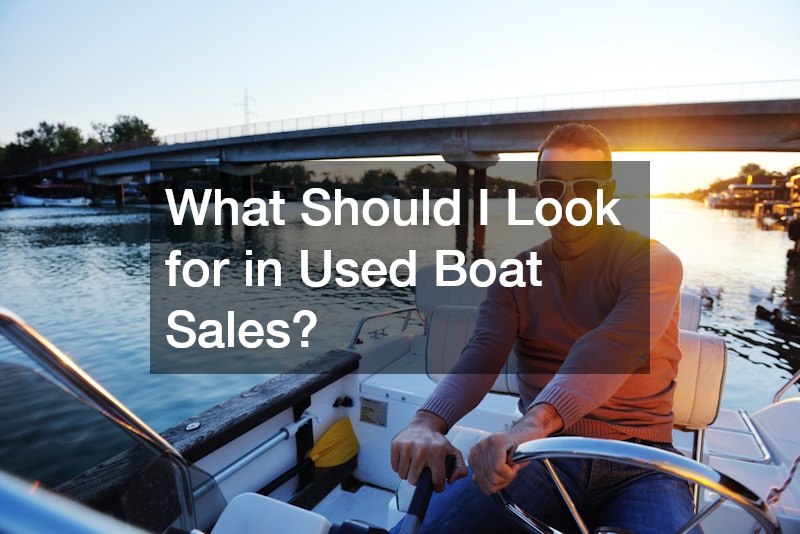In navigating the waters of used boat sales, it’s crucial to equip yourself with knowledge and insights. Understanding what to look for in used boats ensures you make an informed decision. This article addresses the most common concerns and provides guidelines for prospective buyers.
How to Evaluate the Condition of a Used Boat
Inspecting the Hull and Deck
The hull and deck are fundamental components of a boat, providing structural integrity and buoyancy. It’s essential to look for any signs of damage, such as cracks, blistering, or previous repairs, which might indicate deeper issues. Pay special attention to osmosis, a condition commonly seen in fiberglass boats, where water gets into the hull, causing it to weaken over time.
A thorough inspection should involve checking both above and below the waterline for any visual signs of wear or damage. If possible, have the boat hauled out of the water to get a clear view of the hull’s condition. Hiring a professional marine surveyor can also provide expert insights into the true state of these critical areas.
Assessing the Engine and Mechanical Systems
The engine is the heart of any boat, so its condition is paramount when considering a purchase. A visual inspection of the engine should reveal any obvious signs of rust, corrosion, or leaks. The presence of oil or excessive dirt may indicate neglected maintenance, warning of potential mechanical failures in the future.
Running the engine is a critical step; listen for any unusual noises, such as knocking or hissing, that can signify serious issues. Additionally, check exhaust smoke color: blue smoke can mean oil burning, while black indicates too much fuel. Regular servicing records can provide a comprehensive maintenance history, so review them for consistency and detail.
Reviewing the Boat’s Maintenance Records
Maintenance records are an invaluable resource for understanding the boat’s upkeep history. These documents should detail regular service intervals, parts replacements, and any repairs that have been performed. Look for a consistent record indicating the previous owner’s attention to maintenance, which usually results in fewer unexpected repairs.
A comprehensive overview of the maintenance records helps establish how well the boat has been cared for over its lifetime. Records of recent upgrades or parts replacement can hint at the seller’s commitment to keeping the boat in top shape. Conversely, missing or incomplete records could signal neglect, requiring a cautious approach.
Where to Find Reliable Used Boats for Sale
Exploring Online Marketplaces and Classified Ads
Online marketplaces have revolutionized the way people shop for used boats, offering a broad array of listings at their fingertips. Websites specializing in marine classifieds, such as BoatTrader and YachtWorld, provide a wide selection from private sellers to dealerships. Utilize search filters and alerts to narrow down options based on criteria like price, make, and model.
While online platforms offer convenience and variety, it’s crucial to verify the legitimacy of the listings. Be wary of deals that seem too good to be true,e as they may be scams, and never send money before verifying the seller’s credibility. Ask for detailed photographs and, if possible, arrange a video walkthrough before scheduling an in-person inspection.
Visiting Local Dealerships and Marine Brokers
Working with local dealerships and marine brokers can offer a more personalized and secure boat purchasing experience. These professionals have a reputation to maintain and are often accountable, providing reassurance to buyers. Dealerships usually have a varied inventory of inspected boats, often with warranties or service guarantees.
Dealership staff can guide you through the buying process, advising on financing options and additional services like insurance. Marine brokers, acting as intermediaries, can negotiate deals and perform title searches, ensuring legal and transaction security. Establishing a relationship with a dealership or broker can lead to long-term benefits, such as exclusive access to pre-market opportunities.
Attending Boat Shows and Auctions
Boat shows and auctions present unique opportunities to view a wide range of boats all in one location. Boat shows are ideal for comparing different types of vessels side by side and speaking directly with manufacturers and sellers. At auctions, there can be opportunities to purchase boats at competitive prices, appealing to budget-conscious buyers.
What Costs to Consider Beyond the Purchase Price
Understanding Maintenance and Repair Costs
Beyond the initial purchase price, understanding ongoing maintenance and repair costs is crucial for budgeting. Regular maintenance tasks such as engine servicing, hull cleaning, and oil changes keep the boat in optimal condition. Forecasting the cost and frequency of these tasks can prevent financial surprises down the line.
In addition to regular upkeep, unexpected repairs may arise, especially with older boats. Having a contingency fund for significant repairs is wise, as issues with the engine, electrical systems, or hull can be costly. Factors like boat age, type, and prior exposure to harsh environments impact repair frequency and cost.
Calculating Storage and Insurance Expenses
Storage choices for your boat influence costs significantly, whether opting for indoor, outdoor, or in-water solutions. Rates can vary based on location, storage type, and season, so explore different options in your area. Indoor storage offers superior protection, while outdoor storage and slips might be more economical, but with heightened exposure risk.
Researching and comparing costs for desired equipment can provide a realistic picture of necessary expenditures. Often, purchasing equipment during sales or the offseason can yield better prices. Planning and prioritizing upgrades based on immediate needs and budget constraints ensures financial stability.
Purchasing a used boat can be a rewarding investment when approached with the right knowledge and consideration. By focusing on boat condition, reliable sources, and associated costs, you can confidently sail towards your ideal boating experience. With a careful approach and due diligence, the world of boating can open up new adventures and memorable experiences.
.


